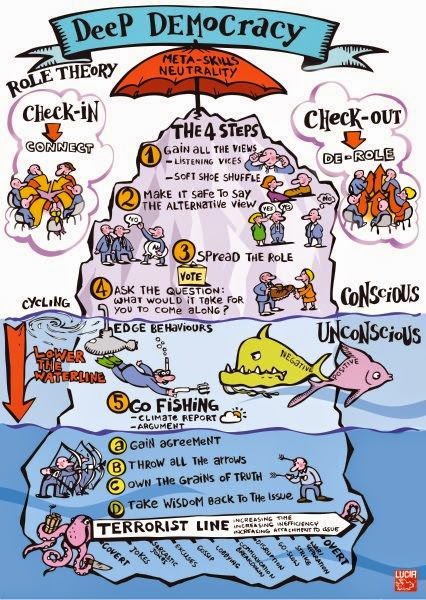Agile is dead - Zombies vs Robots
Dying
The Agile conferences have talks about how very large companies do Agile, which tools they use to collaborate or how non-IT departments do Agile, topics that were also there ten years ago. Agile conferences have yet to adapt to topics like decentralized enterprises, fluid teams, remote-only organizations, AI helpers and commons governance.
The certification crisis seems to follow a similar pattern: was this ever a good measure? Those courses were meant for setting off down a path that makes you better at discovering and uncovering effective ways of working - perhaps we're running out of people who have yet to start, whilst not offering enough to those who are already on the journey.
As for the drastic downturn in demand for Agile Coaches - not long ago I went through an assessment on my coaching skills, yet the questions were all in the form 'what would you advise?'. What used to be called business consulting has simply been re-branded to Agile Coaching.
That was then followed by the hype of companies doing 'Agile Transformations' and 'Scaling', where an organization attempted to change, towards a target operating model, at scale, a phenomenon that seems to be coming to an end. I'm aware that this is looking from the Netherlands - a small and highly saturated market - your mileage may vary.
Undead
Agile Coaches have changed their titles but transformation and scaling are still inappropriate terms for culture change, which is still about nurturing and growth. Top-down change projects still need to be converted into co-creating cultures, empirically. The word Agile has become associated with unpopular practices by two different populations:
Zombies
One group of organizations got Scrum, SAFe or Spotify 'done to them'. They have to formulate user stories, have a predictable velocity and attend lots of meetings where they have to stand. The Liberators have written an entire book dedicated to this group so I'll keep it short: given treatment, the condition can be cured.
People who used to work for these organizations as Agile Coaches externally, now work at the company as some form of (informal) manager. Albeit far from the utopia of a network of tiny enterprises that the agile movement envisaged, at least it is better than the Kafkaesque hierarchies that were around thirty years ago. Whether we're going to call the rest of the journey Agile, doesn't really matter - presumably Agile will become assimilated in the same way that Lean was some thirty years ago.
In this group, there are market forces at play that will eventually force them to sink or swim - but the invisible hand doesn't affect everyone.
Robots
In the other group, Agile was never alive to begin with and they like it that way. They do projects, have yearly budget cycles, clear (but maybe thin) command and control layers and use market capture to maintain a hold over their consumers. Internally they have weak collaboration and although they may have teams, individuals are in competition with each other for advancement. Externally, they have the scale and/or the power to ignore their stakeholders - be they citizens or consumers.
The strange thing about this group is how diverse they are - large financial institutions, government agencies and tech giants all have similarities that make them different from medium sized companies, startups or non-profits. They are the 'too big to fail' club, who appear to have reached some critical mass at which creative destruction no longer has a grip.
The robots will have to be changed both from the outside and the inside - it will take more than just changing how we work. From the outside it will be a combination of more shareholder/citizen influence, market rules that favor resilience over efficiency and costing-in pollution and exploitation to name a few. Besides respecting customers and building healthy teams, there is a huge, largely untapped internal need for updating the mundane, managerial things: finance, HR, strategy and internal decision-making. Not with serious games or by doing Scrum, but by updating the supporting functions to accommodate new structures.
...don't forget the living
I would like to finish with a plea not to succumb to negativity bias. The slightly mad, anarchist, libre philosophy that spawned the manifesto for agile software development is alive and kicking.
Be glad that we notice zombies who do agile without its spirit. Keep resisting the robots who reign by dividing people and serving only their owners. There is a large number of people who want to serve people, are willing to sacrifice for their team, believe in facts over opinions and believe they can make things better.
Let's not mourn the collapse of a religion and instead expand the knowledge about all that we have learned so far!
p.s. In future posts I intend to look at dead Agile and figure out: Who killed it? Who gets the inheritance?




Comments
Post a Comment